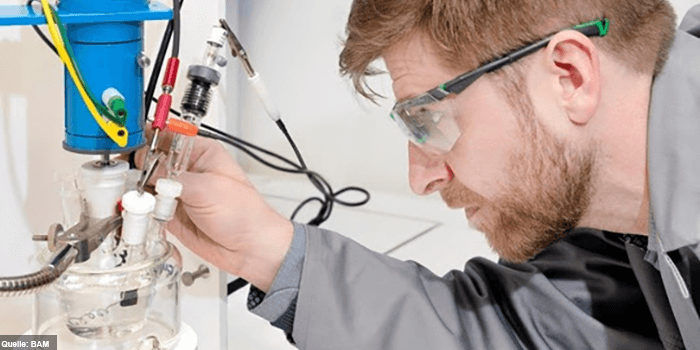Berlin battery institute BAM to develop solid-state sodium batteries
Researchers agree that conventional lithium-ion batteries will soon reach their limits. This is because their anode, usually made of graphite, can only store ions to a limited extent. Anodes made of pure lithium or the more sustainable and cheaper sodium offer an alternative; “However, in order to operate them safely, a solid electrolyte is required instead of a liquid one. A key problem here is that contact losses and cavities can occur at the interface between the solid anode and the solid electrolyte, rendering the battery unusable,” the BAM researchers summarised. One possible solution: a partially liquid anode.
“We were able to show in a study that a liquid alkali metal anode is a hundred times more efficient than conventional graphite anodes,” explains Gustav Graeber, battery material expert at Humboldt University Berlin and guest scientist at BAM. “So far, however, this technology can only be used at 250 degrees Celsius. Our aim is to transfer its advantages to room temperature.” To achieve this, the research team is experimenting with potassium additives that lower the melting point of the anode. The challenge here is that many common solid electrolytes are not stable enough against potassium.
According to the BAM team, the solution could lie in a special solid electrolyte based on sodium super-ion conductors (NASICON), or Natrium-Superionenleiter, as they are called in German. “These materials offer high ionic conductivity at room temperature and are also chemically stable towards potassium, especially if they are mixed with hafnium. But hafnium is rare and expensive.” In the NASICON project, Graeber and his interdisciplinary team of BAM experts are therefore looking for alternative additives that are just as efficient but more sustainable and readily available. The most promising candidates are being tested directly in sodium batteries.
“Our research project is a decisive step towards high-performance batteries that are more sustainable, cheaper and more efficient,” says Graeber. “Sodium solid-state batteries could drastically reduce charging times and significantly improve the performance of mobile and stationary energy storage systems – an important contribution to decarbonisation.”
On a similar note, BAM, together with Humboldt University and the Helmholtz Centre Berlin, recently initiated the establishment of a ‘Berlin Battery Lab’. The lab will pool the battery expertise of the three institutes and will also be open to industry.
idw-online.de (in German)





0 Comments